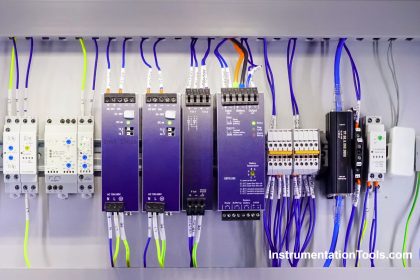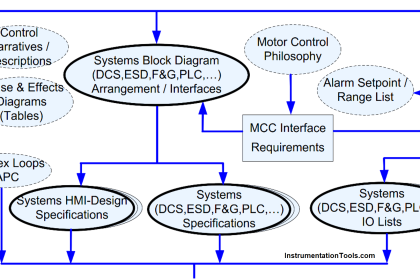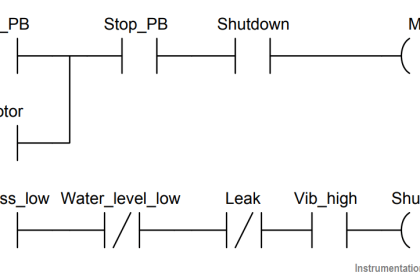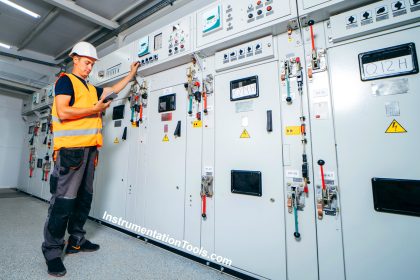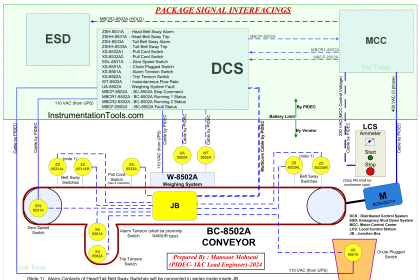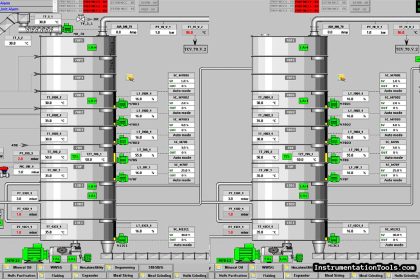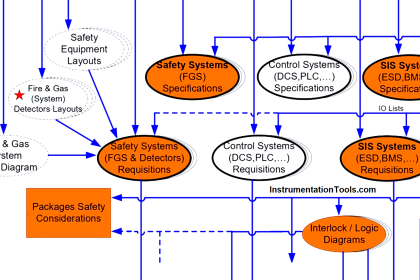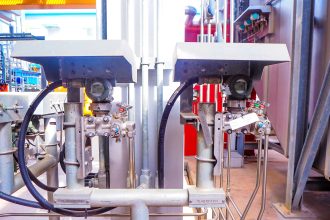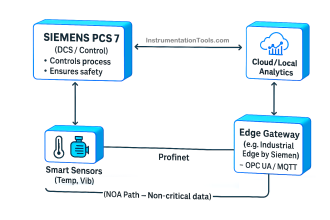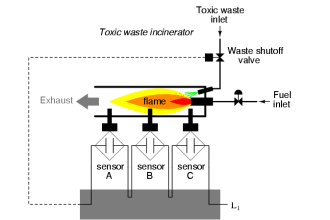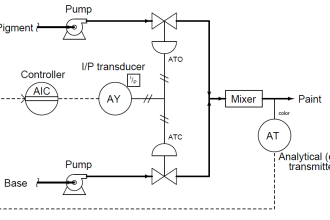In this post, we will understand the use difference between Wi-Fi and industrial wireless.
Communication is an important part of industrial automation. There are many protocols and mediums available in an automation device to support large-scale communication. Out of these, there is one type of Ethernet.
Traditionally, it is the best medium of communication available in an automation device, due to its high-speed connectivity and ease of wiring connection.
Industrial Wireless and Wifi
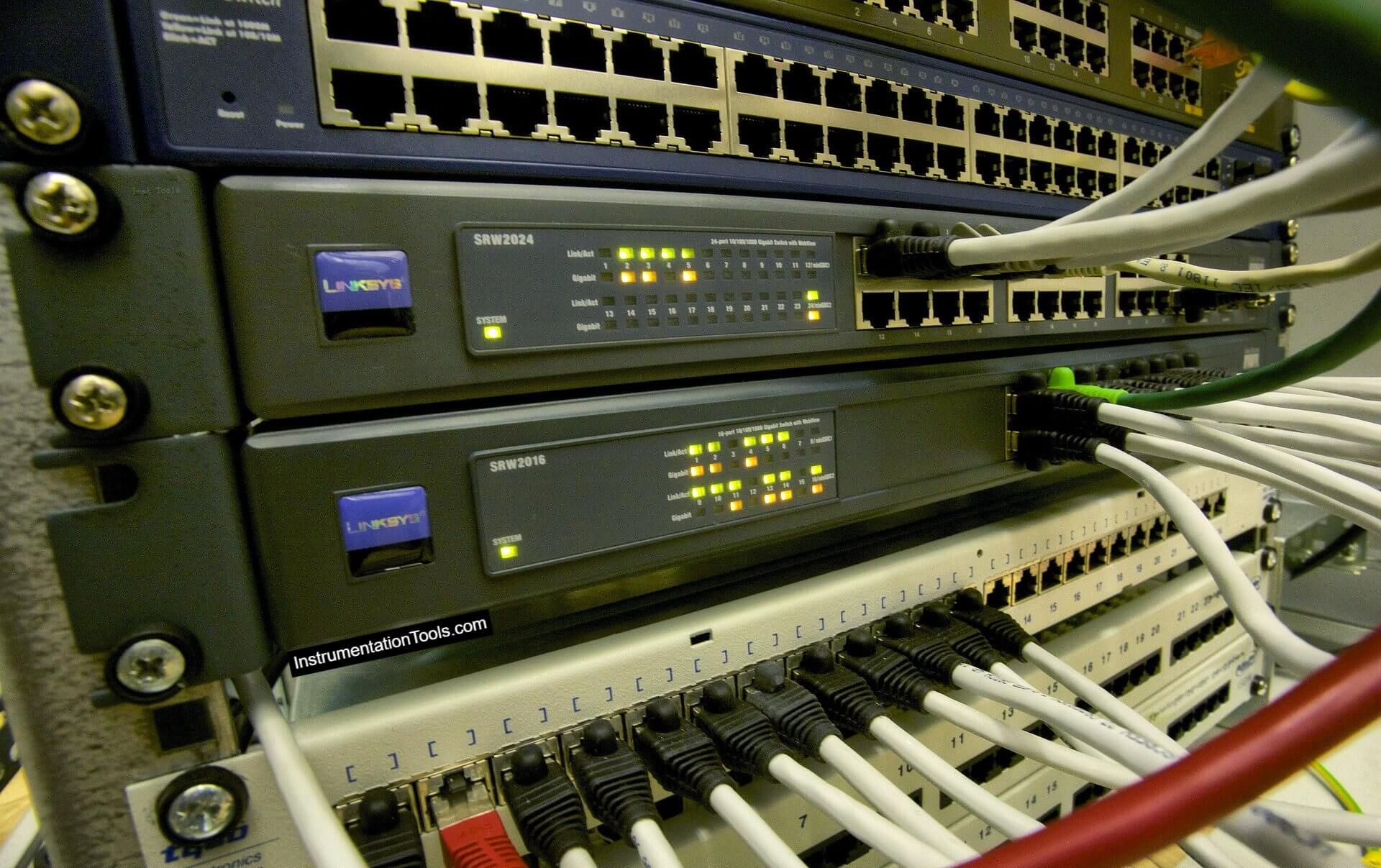
Now, apart from wired Ethernet medium, one more technology called IIoT (Industrial Internet of Things) has been developed and is used widely nowadays. It is nothing but wireless technology.
The wireless technology used in industrial automation is widely different than the wireless communication used at home or office. We will understand here the differences in both technologies.
Let us understand the terms in which they operate and we can then differentiate.
Amount of Data (Data Volume)
Home or our day-to-day systems that use Wi-Fi are designed to handle data such as web surfing, video viewing, downloading files, etc. These are a large amount of data and the domestic wireless system is used for controlling such type of data usage.
But, a wireless technology used in industrial systems does not require a large amount of data. They handle a small amount of data.
Consider a simple temperature sensor. The data exchanged from it can simply be its process variable and tag name. This is just an example.
Different manufacturers have different types of parameters set inside the sensor, which can be used for exchanging data. But, typically, it is not as huge as the one that is used for domestic purposes.
This shows a small amount of data transfer is handled in industrial wireless as compared to Wi-Fi system used for domestic purpose.
Battery Life
A domestic wireless handles large amount of data and due to it’s large time consumption, the devices which are used will consume a lot of battery in a short period of time.
Due to this, the devices which work on domestic wireless will require a lot of charging due to a large amount of power consumption.
Now, if you see industrial automation devices, they are involved in a very small amount of data exchange as discussed earlier.
So, they consume less power and in short, the battery life of such devices (sensors or actuators) last longer. This is very big advantage of industrial wireless devices.
Also, as it is implemented in the field, it would not be helpful if you are required to charge the device every now and then. So, a longer battery life helps to use the device in an easy and efficient way.
Security
Domestic wireless systems are more vulnerable to system hacks and attacks, due to unsecured access connections many a times.
Simply, consider like you are sitting in the airport and accessing their Wi-Fi network. A large number of people are using the same network, which is open, and will thus make the data of user more prone to robbery or attacks.
But, in industrial wireless, the security is provided at the highest level and even it is custom coded. The protection layer is much advanced and safe as compared to a domestic wireless system.
Reliability and Accuracy
Suppose you are using Wi-Fi on your mobile and suddenly a call comes. You were doing something important and all of a sudden, due to incoming call, the work gets interrupted and will take more time than was expected.
Due to low network or connectivity issues, if you are at an important time; it can disrupt the whole process. So, the reliability of this network is low because of such types of problems.
But, in industrial wireless, you cannot operate the system with low accuracy. You are continuously transmitting and receiving data from the device with respect to PLC. The PLC is performing logic based on the data transactions.
So, if communication fails even for a small amount of time, then it can disrupt the logic performance and can also damage the machine if it is critical. It could lead to serious consequences. Industrial wireless is thus designed to communicate in a highly reliable and uninterrupted manner.
These are some of the major differences between domestic wireless and industrial wireless.
If you liked this article, then please subscribe to our YouTube Channel for Instrumentation, Electrical, PLC, and SCADA video tutorials.
You can also follow us on Facebook and Twitter to receive daily updates.
Read Next:
